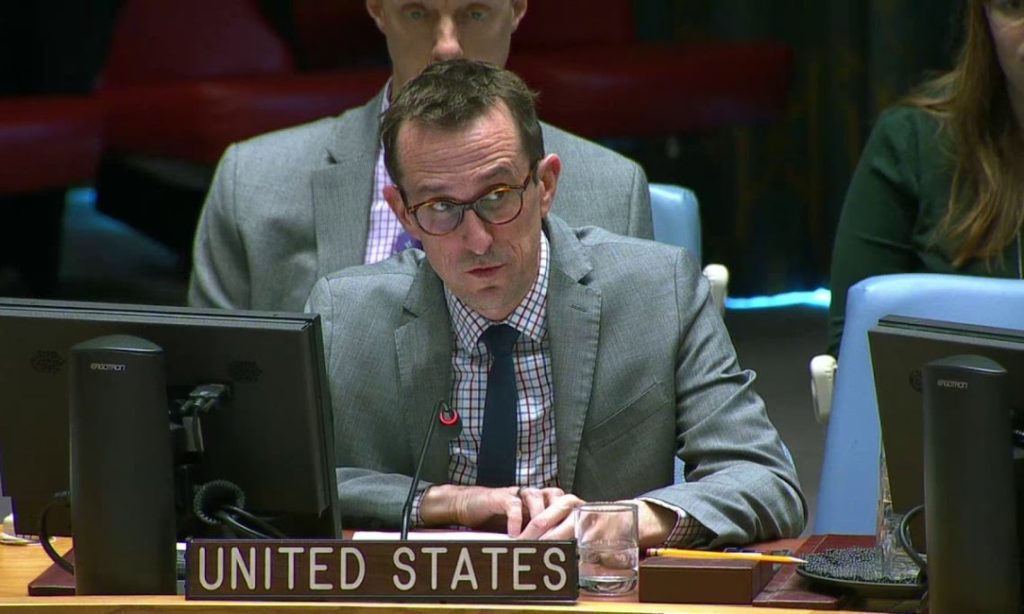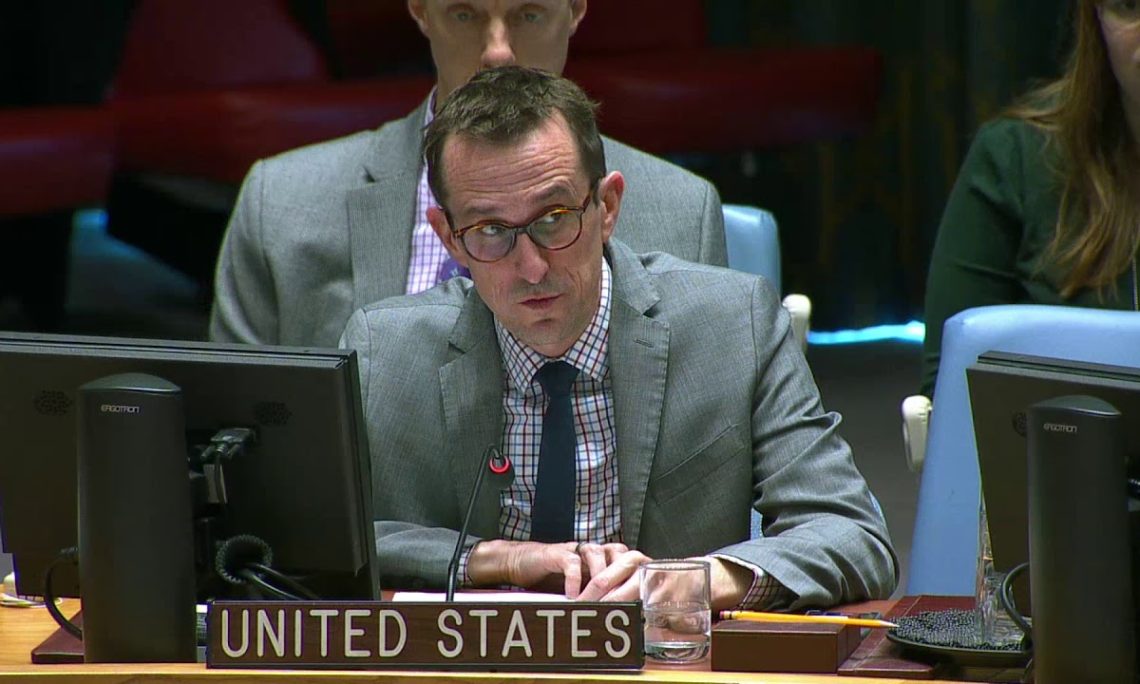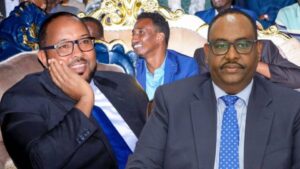United States Mission to the United Nations: Remarks at a UN Security Council Briefing on the Situation in Somalia

24 Feb2020
AS DELIVERED
Thank you, Mr. President. Thank you, Special Representative Swan for your briefing today. The United States deeply appreciates your commitment to advancing security, stability, and development in Somalia. I also thank the other two briefers for their briefings today as well.
Mr. President, 2020 is a critical year as Somalia seeks economic growth and development promised by debt relief, inclusive, peaceful, and credible national elections, and progress towards the transfer of security responsibilities from AMISOM to Somali forces. While these developments each hold tremendous promise for the Somali people, realizing them will require the full commitment of the Government and the people of Somalia. We congratulate Somalia for its commitment to implementing fiscal reforms towards debt relief. The recent announcement by the World Bank and IMF that Somalia is eligible for debt forgiveness is a significant step towards faster economic growth, more grants and investments, increased government revenue, and expanded services for its citizens. To assure progress on debt relief, we urge the Federal Government of Somalia and Federal Member States to agree on financial accountability and revenue sharing principles.
Looking to elections planned for this year, we recognize that Somalia is in a difficult phase in its journey toward democracy, with previous elections marked by limited participation, clan quotas, corruption, and threats of violence. Recent elections in Jubaland, South West State, and Galmudug had their flaws, but we are encouraged that many candidates refrained from violence and demonstrated commitment to a peaceful, negotiated reconciliation process. We are troubled that some electoral models for 2020 and 2021 under consideration are not practical, they could exclude key communities, or they might provide a pretext for delaying the elections. We urge the Federal Government and Member States to work together to keep elections on track this year and agree on a practical model for peaceful, timely, inclusive, and credible elections.
Al-Shabaab remains a deadly and destabilizing force within Somalia and across the region. We extend our deepest condolences for those killed and injured in recent attacks in Mogadishu and Kenya and we reaffirm our commitment to working with our partners to use all means to defeat these terrorists and extremists. Since this Council met in November, Somalia’s armed forces and police have taken positive steps towards ownership of national security. We welcome the progress Somali security forces and AMISOM have made against al-Shabaab in Lower Shabelle, but the operation has stalled. The Government must find a solution to generate capable forces and not allow reversals of recent security gains.
We should acknowledge that the transition of security responsibilities to the Government of Somalia, which must remain a top priority, is behind schedule. AMISOM will not remain in Somalia forever. We support the ongoing efforts of AMISOM’s leadership and look to the Somali security forces and institutions to undertake the reforms and development that will enable them to assume responsibility from AMISOM, following the benchmarks and timeline of the Somalia Transition Plan. At the end of February, AMISOM will draw down 1,000 peacekeeping troops, which is a critical step in this process. Efforts to build capacity within Somalia’s security forces, which give them the ability to hold areas freed from Al-Shabaab, are tremendously valuable, and we extend our appreciation to Somalia’s partners on this Council who are working to build those skills.
Limited resources, institutional challenges, and resistance to reforms continue to undermine Somalia’s ability to generate new forces and take on additional responsibility for security. It is imperative that the Federal Government work to address these challenges as soon as possible. We commend the President for appointing a new generation of Somali National Army leadership focused on reforms, and we urge their full implementation. We also commend the work of the UN Support Office in Somalia, its support of AMISOM, and we call for further accountability, efficiency, and transparency in its operations.
Mr. President, the key to progress on all these fronts is improved cooperation and coordination between the Federal Government and its Member States. The United States is deeply concerned that dissension between them has increased in recent months, and we have continued our outreach efforts to the Federal Government and presidents of the Member States. Greater rapprochement, dialogue and compromise will be necessary on all sides to ensure Somalia’s security, stability and prosperity. We commend the President for his outreach to leaders of Member States, including recently to Somaliland President Abdi, and hope it will lead to a broader reconciliation process. The deployment of SNA troops to a politically motivated offensive in the Gedo region of Jubaland is unacceptable and diverts resources from the agreed roadmap for security operations. It is imperative that Federal Government and Federal Members States security services focus on combatting al-Shabaab, rather than engaging in armed conflict with each other to resolve political disputes. We call on President Farmaajo to end the Somali National Army offensive in Gedo, and for President Farmaajo and Jubaland President Madobe to each commit to dialogue and reconciliation.
Finally, we remain concerned by the continuing humanitarian emergency in Somalia, compounded by the severe locust outbreak affecting the region. With more than $1 billion required for relief aid in 2020, we underscore the need for timely, reliable, and more equitable humanitarian assistance and encourage other governments to join us as we pledge ongoing humanitarian aid for Somalia.
Thank you, Mr. President.
###
Source: https://usun.usmission.gov/






